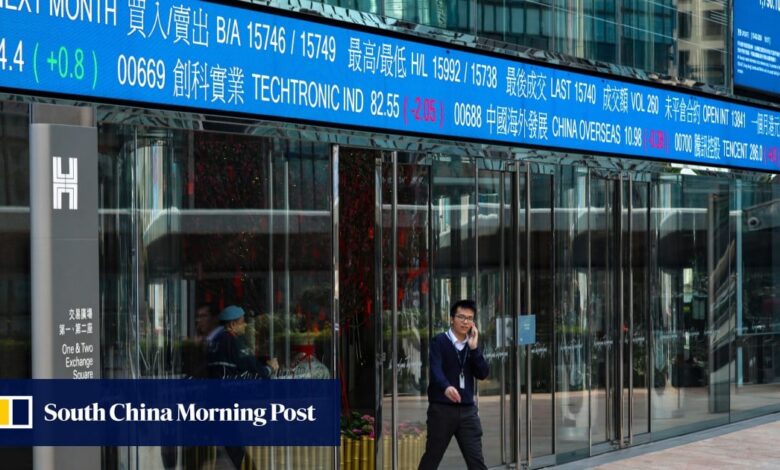China’s aspiring investors, eager for options, feeling lukewarm on cross-boundary offerings

The introduction of a new product has provided another option for budding investors – one which also presents a test for Beijing’s oversight of capital flows.
Lu’s interest was piqued. “This would be a new channel to invest in various financial products in Hong Kong,” she said.
However, when Lu approached a local bank to learn more, she was quickly disappointed.
A high entry threshold – at least 1 million yuan (US$138,979) in net assets, local household registration and ownership of local property – as well as other, more hidden restrictions dampened her enthusiasm.
Over the past decade, China has gradually launched several programmes allowing mainland residents to invest in stocks, bonds, insurance policies and other wealth management products in Hong Kong and vice versa.
The economic slowdown should further enhance the attractiveness of WMC as an alternative
“Mainland households have much less global diversification in their investment portfolios due to capital restrictions … The economic slowdown should further enhance the attractiveness of WMC as an alternative,” said Wong Kin-ming, senior lecturer in accountancy, economics and finance at Hong Kong Baptist University.
“It is crucial for the Greater Bay Area to continue exploring new initiatives in capital account liberalisation, which may involve extending the WMC to more products or introducing liberalisation in new areas, as part of China’s efforts to liberalise its capital account.”
The scheme, with its relative flexibility, is also likely to complicate Beijing’s management of capital movement.
Fund flows via the “ants moving home” approach – slang for carrying cash to Hong Kong or Macau in small amounts – have also been seen as a wide interest rate gap persists.
The one-year deposit rate for Chinese banks is far lower than the over 4 per cent offered in Hong Kong and over 5 per cent in the US.
Since last year, lenders in Hong Kong including HSBC, Standard Chartered, Bank of China (Hong Kong) and DBS recorded strong demand for new accounts from mainland clients.
The WMC is regarded as a mechanism to ease outflow pressures, as fund flows are watched closely under a closed-loop, quota-based management system.
‘Symbolic weight’: China’s Jiangsu opens to foreign firms in strategic sectors
‘Symbolic weight’: China’s Jiangsu opens to foreign firms in strategic sectors
Investors are required to open one bank account for cross-boundary remittance in their place of residence and another account for investment in the other market, and pair the two together.
Figures from the state-owned Economic Daily newspaper showed that there were 71,000 individual retail investors in the Greater Bay Area joining the scheme up to the end of January.
With 67 banks in Guangdong, Hong Kong and Macau taking part in the programme, southbound investment accounted for 94.3 per cent of the total fund that stood at 13.8 billion yuan.
People from other provinces cannot buy overseas financial products through this scheme
“It sounded like a closed loop,” said He Huiying, a human resources manager in Guangzhou. “In fact, our funds cannot be substantially invested overseas.
“Whether [they] deposit or withdraw, citizens already are facing a lot of questioning from banks,” He added, predicting that controls over foreign currency withdrawal could become more stringent.
At present, the scheme seems of little interest to China’s wealthy. Dong Jinyue, senior economist at BBVA Research, said the per-person investment cap of 3 million yuan may not be enough to entice high net worth customers.
“People from other provinces cannot buy overseas financial products through this scheme,” Dong added. “Product varieties need to be further diversified.”
Lu, the Guangzhou-based interpreter, said she felt that even the country’s largest state-owned banks were not enthusiastic about promoting the programme.
“There are no brochures, and investors can’t find any information about it in the online banking app,” she said.
Lu was only able to find a three-month time deposit with an annualised rate of 4.9 per cent. However, investment is capped at 1 million yuan.
Another foreign-funded bank requires household financial assets of 2 million yuan or more from the past three months, as well as a personal average annual income of 400,000 yuan over the past three years.






